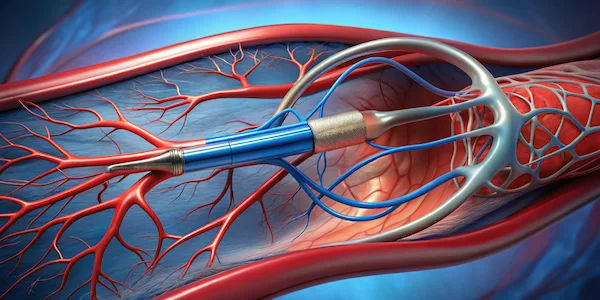- male
- 45 Years
- 22/01/2025
Hey, I just got my recent blood work back, and it's got me a bit concerned. My HDL is at 30 and LDL is really high at 240. Should I be alarmed by these numbers? I've started watching my diet about a week ago to boost my HDL and lower my LDL, but I'm wondering if that'll really make a difference. What should I expect in terms of improvement? Would love some guidance on what else I should be doing.
Answered by 1 Apollo Doctors
To help improve your HDL and lower your LDL levels, you can continue with your proper diet and also consider medication if necessary. For increasing HDL, you can try incorporating foods rich in omega-3 fatty acids like fish, flaxseeds, and walnuts. To lower LDL, you can focus on a diet low in saturated fats and cholesterol, and high in fiber. Additionally, you may benefit from medications such as Atorvastatin (Lipitor) to help lower your LDL levels. It's important to follow up with your healthcare provider for further evaluation and management.
Dr. Chandra Suggests...
Consult a Cardiologist
Answered 04/07/2025
0
0


Ask Apollo
AI powered Health Chatbot
-
Understanding Your Cholesterol Numbers
- HDL (High-Density Lipoprotein): At 30 mg/dL, your HDL is low. HDL helps remove cholesterol from your arteries.
- LDL (Low-Density Lipoprotein): At 240 mg/dL, your LDL is high. High LDL can lead to plaque buildup in arteries, increasing heart disease risk.
-
Impact of Dietary Changes
- Diet Influence: Reducing saturated fats and increasing fiber can improve cholesterol levels.
- Expected Improvement: Changes may take several weeks to months to show significant results.
-
Additional Lifestyle Modifications
- Physical Activity: Engage in regular exercise, such as brisk walking or cycling.
- Weight Management: Aim for a healthy weight to help control cholesterol.
- Avoid Tobacco and Limit Alcohol: These can negatively impact cholesterol levels.
-
Medical Evaluation and Treatment Options
- Consultation: See a healthcare provider for personalized advice.
- Possible Tests: A lipid panel and possibly an ECG to assess cardiovascular risk.
- Medications: Statins may be recommended if lifestyle changes are insufficient.
-
Monitoring and Follow-up
- Regular Monitoring: Keep track of cholesterol levels with your healthcare provider.
- Set Goals: Work towards realistic HDL and LDL targets.
- Maintain Healthy Habits: Continue with lifestyle changes and follow medical advice.
Recommended next steps
Consult a Cardiologist or Consult a Clinical Nutritionist
Answered 20/08/2025
0
0
More Cardiology Health Queries
View allI'm really worried about my parents' health. My father, who's 71, has a CT value of 18 and is a heart patient. My mother is 70, her CT value is 6, and she's diabetic. Should I be concerned about their condition? Would appreciate any advice you can give!
since your father's ct value is high , there's a need to worry
Answered by 1 Apollo Doctors
I'm taking Ciplar LA 20 for my anxiety, but I skipped my dose yesterday. My heart rate was still at 68. Is it okay if I take Ciplar now?
yes u can continue same medication.
Answered by 1 Apollo Doctors
I'm curious if it's normal for my heart rate to be between 50 to 60 while I'm sleeping because I'm noticing it jumps to about 140 when I'm doing housework. Can you tell me if that's okay and what my heart rate should be when I'm resting?
A heart rate of 50 to 60 beats per minute during sleep is generally considered normal, especially if you are physically fit. However, a heart rate of 140 during housework seems elevated and may warrant further evaluation. For sleeping, the normal resting heart rate typically ranges from 60 to 100 beats per minute, but it can be lower in healthy, fit individuals. Its advisable to discuss these fluctuations with your healthcare provider to ensure there are no underlying issues that need addressing
Answered by 1 Apollo Doctors
Disclaimer: Answers on Apollo 247 are not intended to replace your doctor advice. Always seek help of a professional doctor in case of an medical emergency or ailment.




